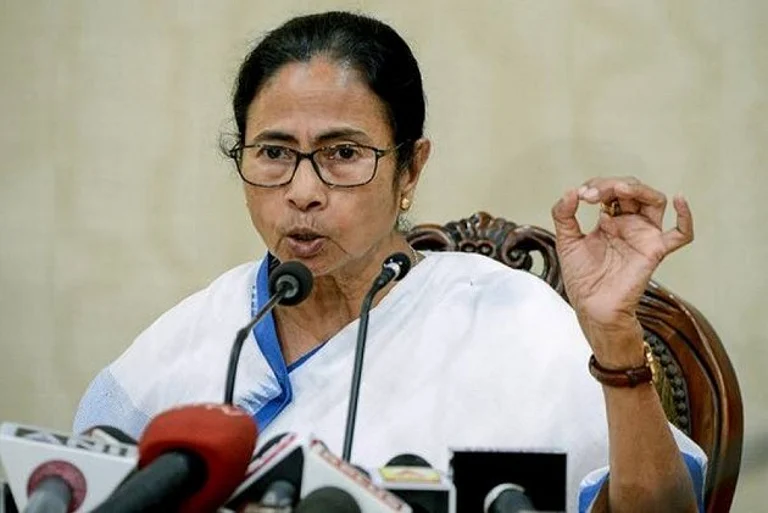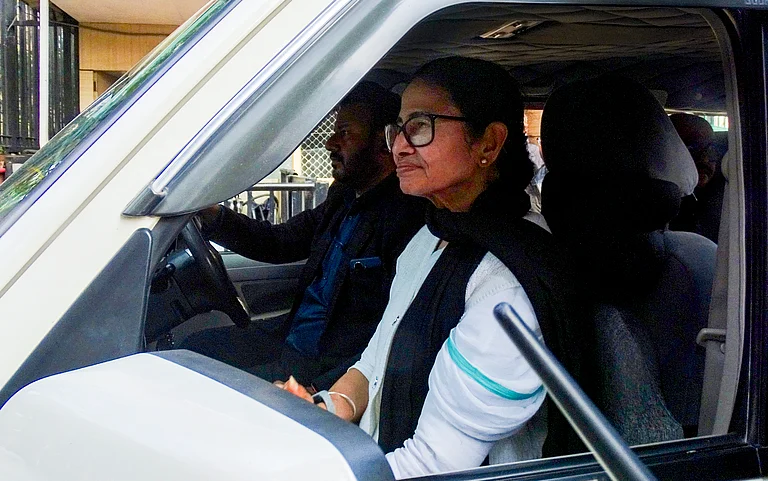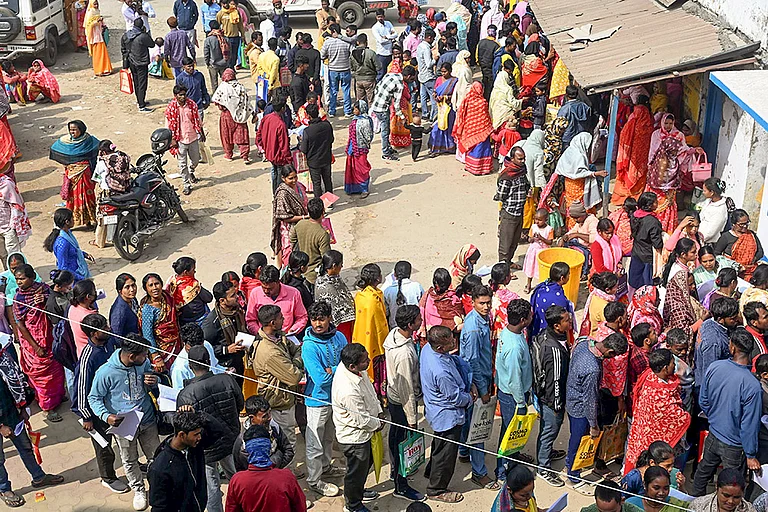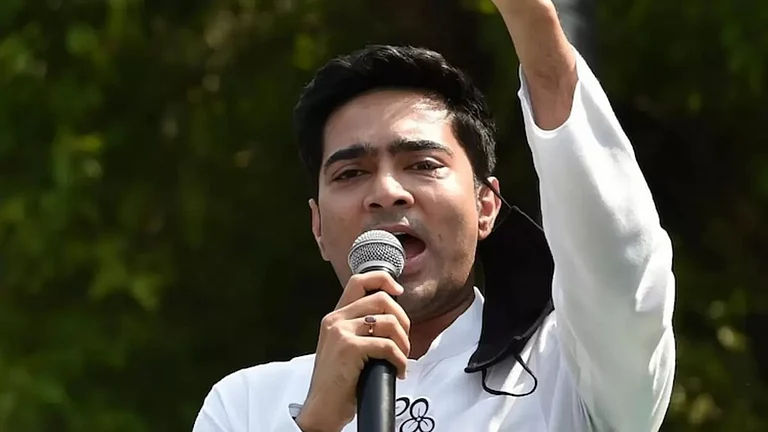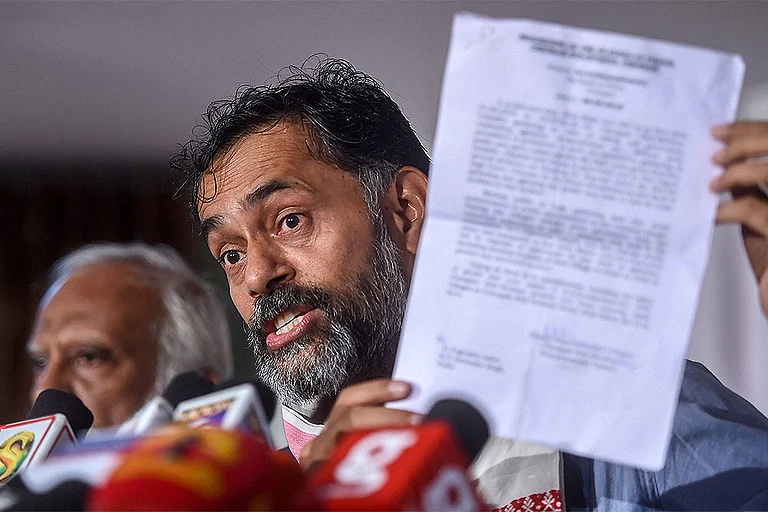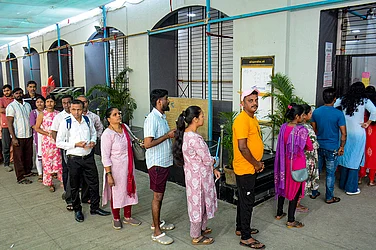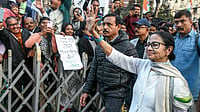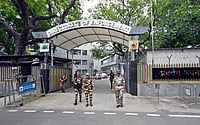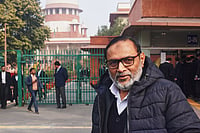The Supreme Court on Thursday directed the Election Commission of India (ECI) to consider Aadhaar, voter ID as part of the list of documents for the purposes of its Special Intensive Revision (SIR) in Bihar just months before the State’s assembly elections in November. The court ordered that the SIR would continue.
“The process of SIR will go on. The list of documents is not exhaustive. Aadhaar card, voter card will be accepted. You (ECI) can do your work, but do it in accordance with the mandate of law. The statute allows Aadhaar,” said a bench comprising of Justices Sudhanshu Dhulia and Joymalya Bagchi.
The Court was hearing a batch of petitions filed by opposition party leaders and some NGOs challenging the ECI's June 24 directive ordering a special intensive revision of the electoral rolls in Bihar.
Senior advocate Rakesh Dwivedi, representing the ECI, said that the list of documents for verification of voters includes 11 documents and “is not exhaustive.”
The court then said: “in our opinion, it would be in the interest if justice if Aadhaar card, EPIC card and Ration card be included. It is for the ECI to still decide whether it wants to take the documents or not. If it does not take the documents, (it has to) give reasons for the same and the same shall satisfy the petitioners. Meanwhile, petitioners are not pressing for an interim stay."
The bench added that there were three main questions to this case.
“We are prima facie of the opinion that there are three questions: 1. Powers of ECI to conduct SIR, 2. The procedure to exercise the powers and 3. The timeline which is very short and due in November, and notification will come in advance,” it said.
The bench posted the matter for further hearing on July 28, after the SIR’s first round of verification is completed. The court added that parties should file their counter-affidavits by July 21, and rejoinders before the next date.
“Aadhaar Not Proof of Citizenship”: ECI
During the hearing, the ECI through Dwivedi argued that the constitutional body could not accept only Aadhaar for the purposes of the SIR as Aadhaar was only identification proof, and not proof of a person’s citizenship. Pointing out Article 326 of the Constitution, Dwivedi said: “Every voter has to be an Indian citizen, and an Aadhaar card is not proof of citizenship.”
The court, however, did not accept this argument. Justice Bagchi pointed out that Aadhaar was mentioned as proof for inclusion in the electoral rolls in section 23 of the Representation of People Act 1950.
When Dwivedi objected on this, saying Aadhaar was not used as electoral rolls proof, the judge pointed to the section and said, “look at the section heading…it says inclusion in electoral rolls.”
Dwivedi defended excluding Aadhaar from accepted documents. The bench responded that, “ECI had nothing to do with citizenship … that was the domain of the Home Ministry."
The court added that the ECI should have acted earlier if it wanted to check citizenship of Bihar voters. “If you are to check citizenship under SIR of electoral rolls in Bihar, then you should have acted early; it is a bit late,” said the bench.
“Your exercise is not the problem, it is the timing,” the bench remarked, recognising the rationale behind the revision but rebuking its hurried implementation so close to polls,” said the court.
Dwivedi argued that ECI had the authority to revise the electoral rolls, saying that the last intensive revision had happened 12 years ago in 2003. “With passage of time, electoral rolls need to be revised to look into the inclusion or exclusion of voter names, with the SIR being the one exercise to do it,” he said. “If the ECI did not have the power to revise the electoral roll, then who did?”
While the bench mentioned that the ECI should not publish the draft list before the date of next hearing, Dwivedi argued that not adhering to the ECI’s timeline would derail the whole exercise. He pointed out that there were many avenues through which the voters, if excluded, could appeal their exclusion.
The court noted that the petitioners were not pressing for an interim stay on the EC’s SIR notification at this stage.
EC promises fair process
“Let us conduct this exercise and use it as a benchmark for our efficiency and perfectness,” Dwivedi appealed to the apex court.
The ECI told the top court that no voter would be excluded who would not have an opportunity to be heard, adding that the SIR exercise would cover approximately 7.9 crore citizens in Bihar. The court observed that, “there is nothing wrong with the SIR exercise itself, but it should have been undertaken well before the elections.”
Burden of proof shifted onto voters
Senior advocate Gopal Sankaranarayanan, appearing for the petitioners said that the SIR exercise effectively shifts the burden of proof of citizenship on to the voter. He pointed out that SC’s own judgements state that once a person is on the voter rolls, it is for the ECI to prove why they should be struck off.
“The preliminary legal issue is that the SIR shifts the burden of proof from the Election Commission to the voter to prove their eligibility and citizenship,” he said.
Issue Goes to the Root of Democracy: SC
While dictating the order, Justice Dhulia said, “There is no question that this issue is an important issue and goes through the very root of democracy, the right to vote.”
He further noted that such a process should not be rushed as that would be a risk to the democratic process. “Once the electoral roll is prepared, elections could be notified with short notice … and once the elections are notified no court would touch this.”
He further added that the court had its doubts that the ECI’s timelines were possible. Justice Dhulia pointed out that “census itself takes a year and the ECI deadlines are just 30 days.”
In response, Dwivedi argued that the SC must not “stall the process now merely on the basis of doubts.”
ECI then suggested that there be judicial oversight of the draft rolls. “Let the revision exercise be completed. And then your lordships can look at the entire picture... We will show it before it is finalised,” said Dwivedi.
The Supreme Court was hearing a batch of over 10 petitions challenging the Election Commission’s 8 May notification initiating the special revision of electoral rolls in Bihar. As reported by Bar and Bench, the petitioners include the NGO Association for Democratic Reforms (ADR), RJD MP Manoj Jha, Trinamool Congress MP Mahua Moitra, Congress MP K C Venugopal, NCP (SP)’s Supriya Sule, CPI leader D Raja, Samajwadi Party’s Harinder Singh Malik, Shiv Sena (UBT)’s Arvind Sawant, JMM’s Sarfraz Ahmed, and CPI (ML)’s Dipankar Bhattacharya.







